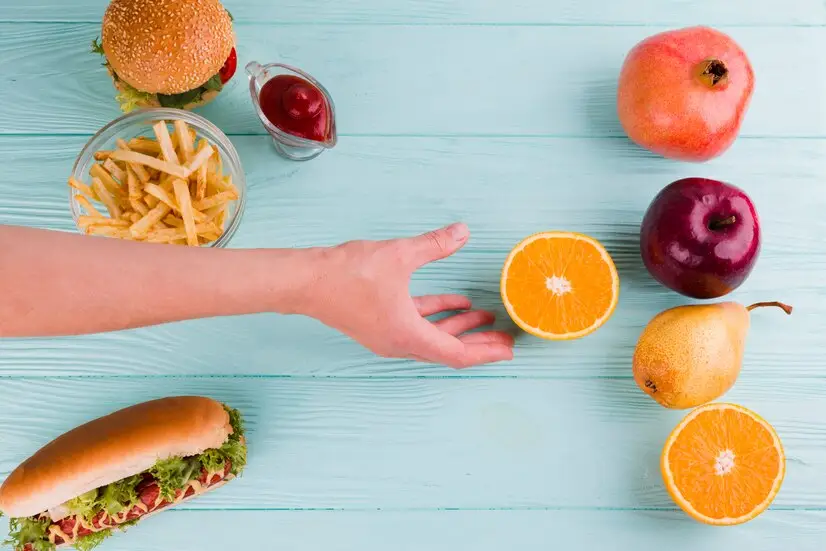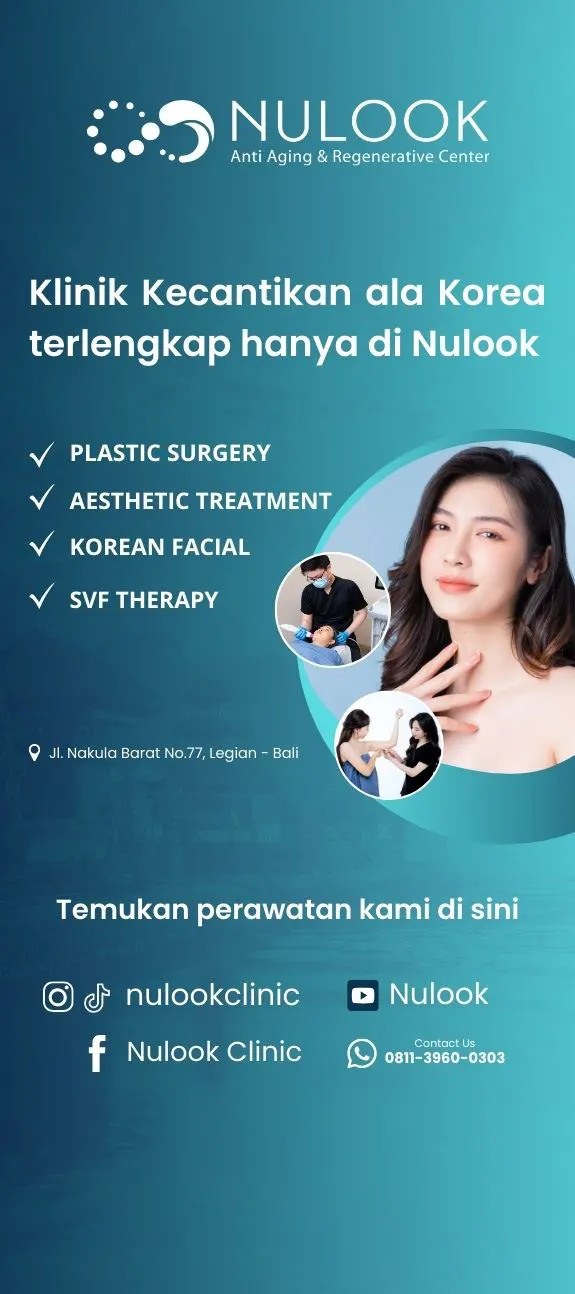5 Food Restrictions After Plastic Surgery You Need to Understand
Author: Nulook ExpertiseReview by: -Have you just undergone plastic surgery or are you planning to? Besides wound care and adequate rest, there's an important aspect that is often forgotten but has a significant impact on the recovery process and the final results of plastic surgery: your diet.
What you consume after surgery can affect how quickly your body recovers and how the final results of the surgery appear. Therefore, it's important to understand food restrictions, the recommended foods, and the diet you should follow after plastic surgery. Let's discuss further!
Food Restrictions After Plastic Surgery
After undergoing plastic surgery, there are several types of foods you should avoid. Why? Because these foods can slow down the healing process or even cause complications. Here are some food restrictions after plastic surgery:
1. High-Salt Foods
Foods high in salt or sodium can cause fluid retention, leading to swelling. To speed up healing and reduce swelling, you should avoid high-salt foods such as processed foods, salty snacks, and fast food.
2. High-Sugar Foods
Foods high in sugar can weaken the immune system and slow down wound healing after plastic surgery. Therefore, avoid sweet foods such as cakes, candies, and sugary drinks.
3. High-Fat Foods
High-fat foods, especially those containing saturated and trans fats, can increase inflammation and slow down healing. Avoid fried foods, fast foods, and processed products with high-fat content after plastic surgery.
Read Also: Types of Nose Implants: Choose the One That Suits Your Desire
4. Alcohol
Alcohol can interfere with the effects of anesthesia and other medications given during and after surgery. Moreover, alcohol can thin the blood, increasing the risk of bleeding and slowing down the wound healing process. Therefore, you should avoid alcohol consumption for at least a few weeks before and after surgery, as advised by your doctor.
5. Caffeine
Caffeine, found in coffee, tea, and energy drinks, has a diuretic effect that can cause dehydration. Dehydration can slow down the wound healing process and increase the risk of complications. Therefore, it's important to limit caffeine intake after surgery. If you are a heavy coffee or tea drinker, discuss with your doctor the best way to gradually reduce caffeine intake before surgery.
Recommended Foods After Plastic Surgery
So, what are the recommended foods to consume after plastic surgery? Here are some foods that can help speed up the healing process and ensure your body gets the nutrients it needs.
1. High-Protein Foods
Protein is crucial for tissue repair and speeding up wound healing. You can get protein from sources such as chicken, fish, eggs, and low-fat dairy products. Plant-based protein sources like beans, lentils, and tofu are also good alternatives.
2. Fruits and Vegetables
Fruits and vegetables are rich in vitamins, minerals, and antioxidants that help the body heal. Fruits like oranges, berries, and kiwi are high in vitamin C, essential for collagen production. Green vegetables like spinach and broccoli are rich in vitamin K, which aids in blood clotting and wound healing.
3. Healthy Fats
Healthy fats such as omega-3s found in salmon, nuts, and chia seeds help reduce inflammation and speed up healing. Consuming olive oil and avocados is also beneficial as a source of healthy fats.
Read Also: How to Sharpen Your Nose: Easy Tips for the Ideal Nose Shape
4. High-Fiber Foods
Fiber aids digestion and prevents constipation, which can be a common issue after surgery due to the side effects of anesthesia and painkillers. Therefore, increase your intake of fiber-rich foods such as fruits, green vegetables, and whole grains.
5. Fluids
Hydration is key in the post-surgery recovery process. Make sure you drink enough water and avoid sugary and caffeinated drinks, as they can cause dehydration. In addition to water, you can consume bone broth or low-sodium soups to increase fluid and electrolyte intake essential for the body.
Recommended Diet After Plastic Surgery
Following a healthy and balanced diet is essential for a quick and effective recovery after plastic surgery. Here are some dietary tips you can follow:
1. Eat Small and Frequent Meals
After surgery, your body might not be ready for large meals. Eat small but frequent meals, such as 5-6 times a day. This will help maintain your energy and nutrient levels.
2. Avoid Spicy and Fatty Foods
Spicy and fatty foods can disrupt the digestive system and slow down recovery after plastic surgery. Focus on consuming light and easily digestible foods.
3. Take Supplements if Needed
Sometimes, food intake alone might not be enough to meet your nutritional needs. Consult with your doctor about the possibility of taking vitamin and mineral supplements such as vitamin C, vitamin D, zinc, and omega-3.
4. Get Enough Rest
Don’t forget that rest is also an important part of the recovery process. Make sure you get enough sleep and avoid heavy physical activities until your doctor gives the green light.
5. Pay Attention to Your Body’s Signals
Pay attention to your body and watch for signs that might indicate a problem. If you feel nauseous, uncomfortable, or experience unusual symptoms, consult with your doctor immediately for further treatment.
Read Also: Understanding Botox: Uses, Benefits, and Risks
Paying attention to your diet after plastic surgery is crucial to ensuring optimal healing and the best results. Avoid foods high in salt, sugar, saturated fats, and alcohol and caffeine, as they can hinder the healing process and increase the risk of complications.
Conversely, prioritize foods rich in protein, such as lean meat, fish, eggs, and beans, to help repair damaged tissue. Also, complement your diet with fruits, vegetables, healthy fats from avocados or olive oil, and fiber from whole grains.
If you undergo procedures like Fat Transfer, where fat from other body parts is transferred to the desired area, the right nutrient intake will help maintain the quality of the transferred fat and ensure optimal results. As the first Korean aesthetic clinic in Bali, Nulook offers a safe and effective Fat Filler Bali procedure to enhance your body shape.
Interested in experiencing the benefits of Fat Filler Bali? Don't hesitate to consult with our expert team at Nulook. Get complete information about this procedure and realize your dream of an ideal body shape now!


